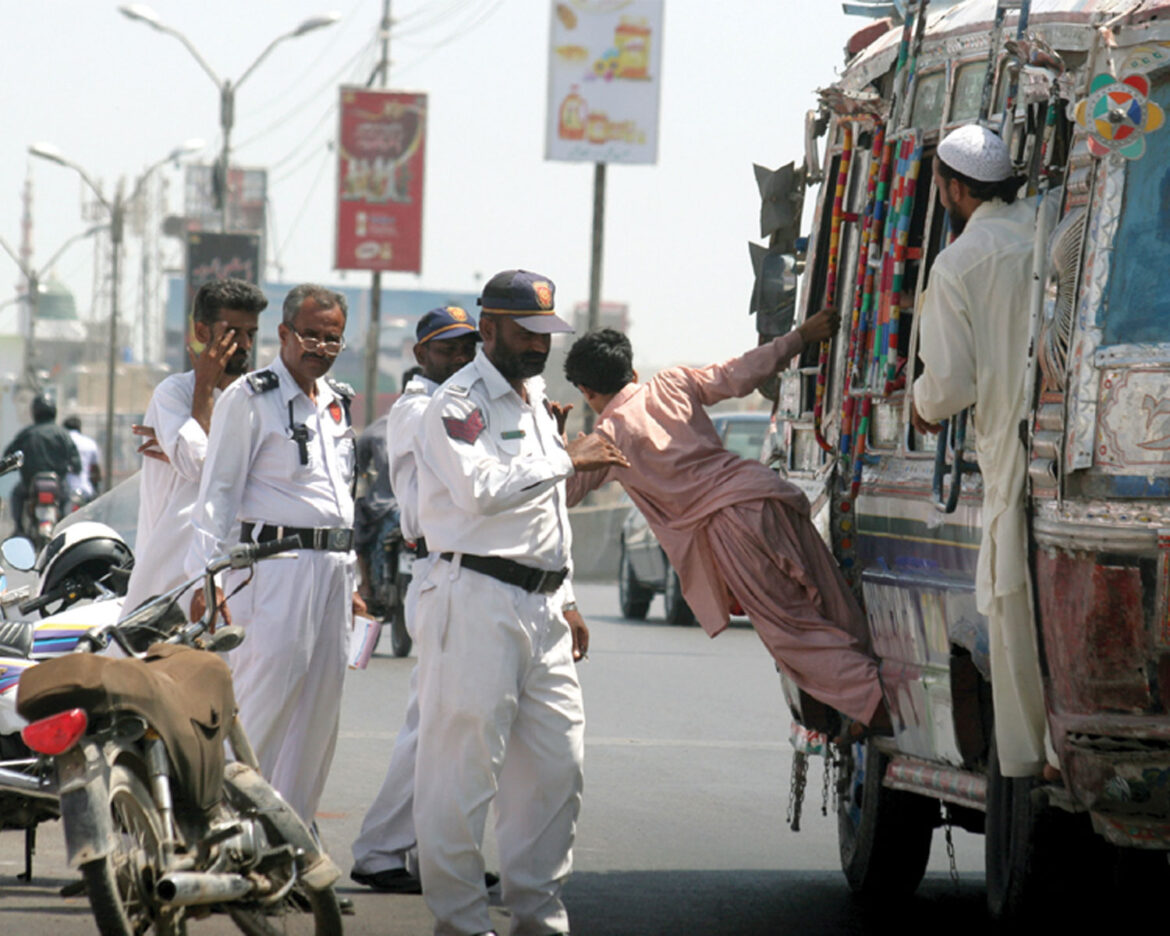In a significant development, the Karachi traffic police are set to receive 30% of the total fines collected from traffic violations over the past year, with the remaining 70% allocated to the provincial government. The decision has sparked debate, with some viewing it as a “slaughtering of the milch cow” of the country.
According to official data, from July 1, 2023, to the end of July 2024, traffic fines in Karachi have amassed a staggering Rs1.2 billion. During this period, over two million traffic tickets were issued, totaling Rs1,294,886,450, which averages around Rs3.5 million per day. Of this amount, citizens have already paid Rs1.19 billion, leaving Rs100 million in unpaid fines.
In the current year alone, from January to July, the traffic police issued 992,576 challans amounting to Rs699,813,650.
Despite the high fines, incumbent Sindh Inspector General of Police (IGP) Ghulam Nabi Memon had emphasized that traffic police should not be a revenue-generating entity. However, the substantial fine amounts suggest that this guidance is not being strictly followed.
According to the policy, traffic police are entitled to 30% of the total fine amount, which would translate to approximately Rs360 million from the Rs1.2 billion collected. However, DIG-Traffic Ahmed Nawaz Cheema reported that traffic police have not received their share for the past four to five years. Of this 30%, 15% is designated for cash rewards for officers, while the remaining portion is for purchasing equipment.
Cheema stated that the IGP-Sindh and Karachi police chief Javed Odho had directed that traffic fines should primarily target moving violations such as wrong-way driving, disobeying traffic lights, and vehicles without number plates. He claimed that since the IGP’s intervention, the rate of traffic violations has decreased to one-third of previous levels.
District-wise Breakdown:
- District East: Rs240,260,100 (357,374 tickets)
- District West: Rs224,790,700 (309,170 tickets)
- District Malir: Rs207,635,350 (317,310 tickets)
- District South: Rs189,882,600 (315,351 tickets)
- District City: Rs164,565,800 (268,514 tickets)
- District Central: Rs145,544,050 (238,365 tickets)
- District Korangi: Rs122,207,850 (201,604 tickets)
Pending Fines:
- District Malir: Rs20,609,600 (23,933 tickets)
- District West: Rs20,300,900 (18,091 tickets)
- District East: Rs18,783,550 (20,324 tickets)
- District South: Rs12,683,900 (15,190 tickets)
- District Central: Rs11,502,350 (14,216 tickets)
- District City: Rs11,214,200 (13,858 tickets)
- District Korangi: Rs7,912,000 (8,530 tickets)
Muttahida Qaumi Movement-Pakistan senior leader Farooq Sattar criticized the policy, equating Karachi to a “milch cow” being exploited. He warned that such practices could lead to increased suicides and crime rates.
Former Citizen-Police Liaison Committee Chief Jameel Yousuf also expressed concerns, suggesting that the fines should contribute to improving city traffic conditions. He advocated for better signage to inform citizens about traffic violations and revisited a proposal from the early 90s to appoint honorary magistrates to handle traffic violation cases.
The debate continues over the fairness and effectiveness of the traffic fine distribution policy, with calls for a more transparent and beneficial approach for Karachi’s residents.



